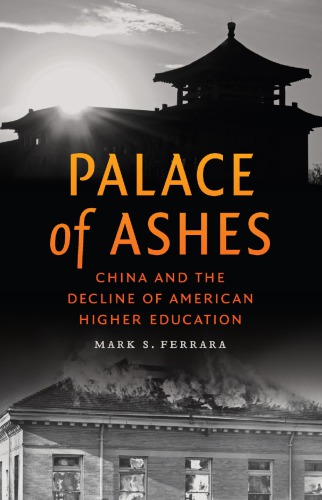

Most ebook files are in PDF format, so you can easily read them using various software such as Foxit Reader or directly on the Google Chrome browser.
Some ebook files are released by publishers in other formats such as .awz, .mobi, .epub, .fb2, etc. You may need to install specific software to read these formats on mobile/PC, such as Calibre.
Please read the tutorial at this link: https://ebookbell.com/faq
We offer FREE conversion to the popular formats you request; however, this may take some time. Therefore, right after payment, please email us, and we will try to provide the service as quickly as possible.
For some exceptional file formats or broken links (if any), please refrain from opening any disputes. Instead, email us first, and we will try to assist within a maximum of 6 hours.
EbookBell Team

4.4
42 reviewsIn addition to possessing the world’s largest economies, China and the United States have extensive higher education systems comparable in size. By juxtaposing their long and distinctive educational traditions, Palace of Ashes offers compelling evidence that American colleges and universities are quickly falling behind in measures such as scholarly output and the granting of doctoral degrees in STEM fields. China, in contrast, has massed formidable economic power in support of its universities in an attempt to create the best educational system in the world.
Palace of Ashes argues that the overall quality of U.S. institutions of higher learning has declined over the last three decades. Mark S. Ferrara places that decline in a broad historical context to illustrate how the forces of globalization are helping rapidly developing Asian nations―particularly China―transform their major universities into serious contenders for the world’s students, faculty, and resources.
Ferrara finds that American institutions have been harmed by many factors, including chronic state and federal defunding, unsustainable tuition growth, the adoption of corporate governance models, adjunctification, and the overall decline of humanities education relative to job-related training. Ferrara concludes with several key recommendations to help U.S. universities counter these trends and restore the palace of American higher learning.